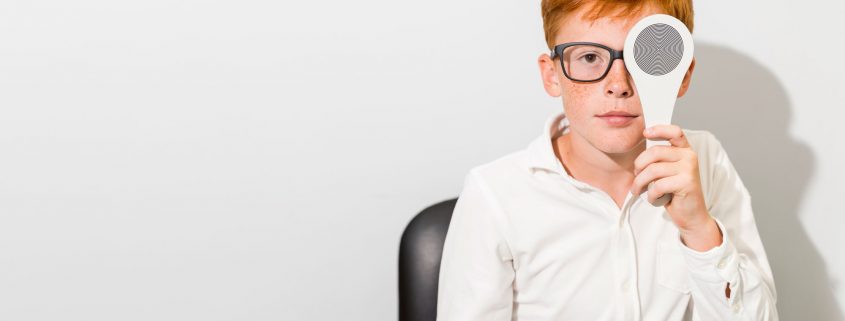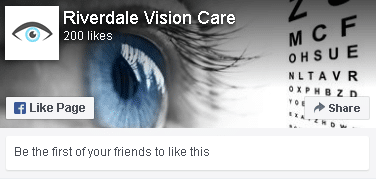Why Your Child Needs a Back-to-School Eye Exam
Good vision is essential at any age, but it’s especially critical that your child sees well in school. Not only can vision problems affect your child’s school performance adversely, but they can impact your child’s safety, and their ability to play sports and interact in social situations. Getting your child a vision screening before or early during the school year can ensure your child gets the most out of school.
Nearly 2 out of 10 children have refractive errors, which are vision problems causing the child to have blurry vision. The most common refractive errors are:
- Being nearsighted: Nearsighted means your child cannot has trouble seeing faraway objects clearly
- Being farsighted: Farsightedness means your child has difficulty seeing objects up close.
- Having astigmatism. With this vision problem, your child has trouble seeing both up close and far away.
Children with refractive errors need glasses. Without refractive vision correction, they are at risk for a lazy eye, or amblyopia, or even irreversible vision loss.
Classroom Issues Affected by Poor Vision
If your child has problems with their vision, they may have trouble seeing the chalkboard, overhead projections or computer screens well. This may inhibit their ability to grasp concepts and learn information in the classroom potentially leading to sub-standard school performance and delayed learning development.
Outside the Classroom Issues Affected by Poor Vision
Good vision is vital for your child to get the most out of their in-classroom school experience. But poor vision has other repercussions outside the classroom as well.
- Sports and playground activities: Poor vision can lead to hand-eye coordination troubles and interfere with their ability to catch or kick a ball. If your child’s vision impacts their recreational performances, it could lead them to being picked last for team-based sporting activities.
- Social life: Poor vision can lead to teasing or bullying if your child makes faces, such as squinting or tilting his or her head to see better, or misreads visual cues when talking with their friends.
- Stress levels at home: You and your child could experience added stress at home if, for example, homework takes longer to complete.
Schedule Your Child’s Vision Screening Exam
Many parents don’t realize their child is having trouble seeing until their school performance, sports, or social interactions begin to suffer. The best way to ensure your child has healthy vision is to schedule a vision screening exam for your child. Make an appointment today at Riverdale Vision Care by calling 973-248-0060.






Leave a Reply
Want to join the discussion?Feel free to contribute!